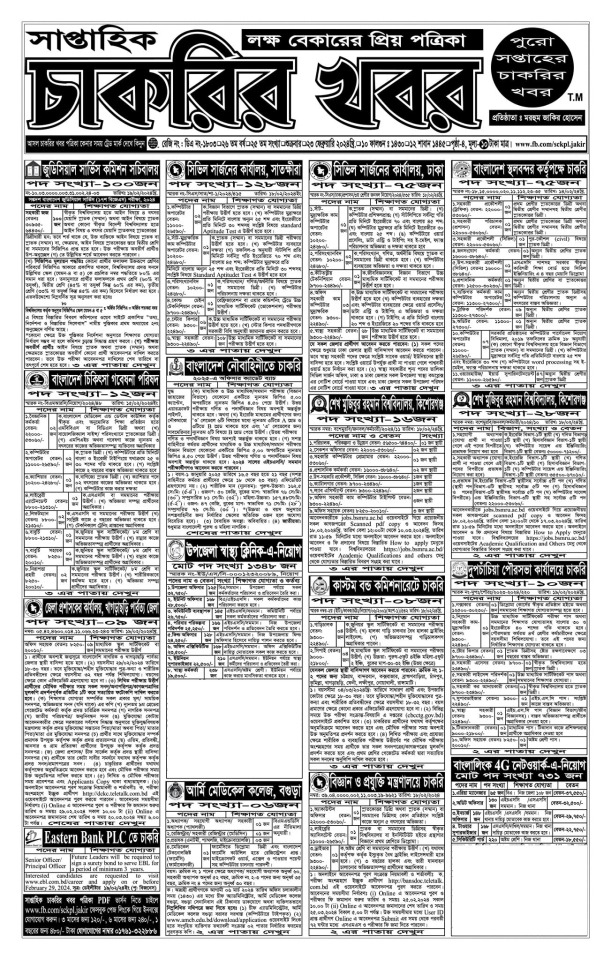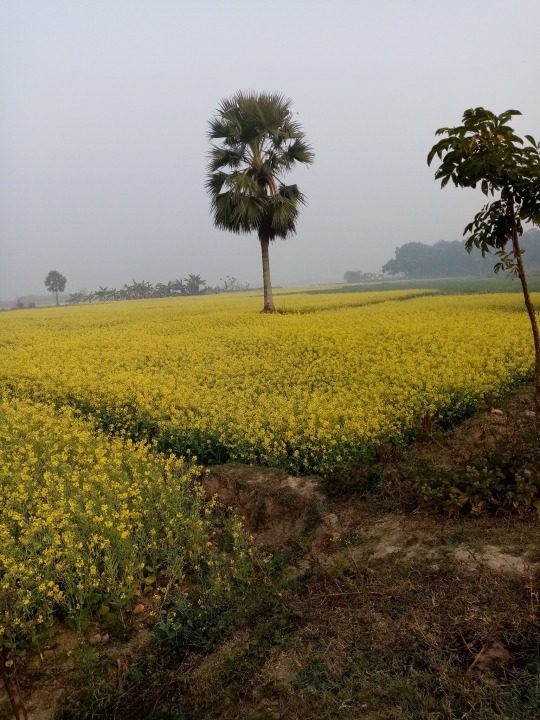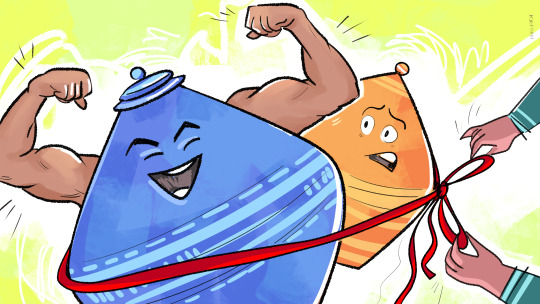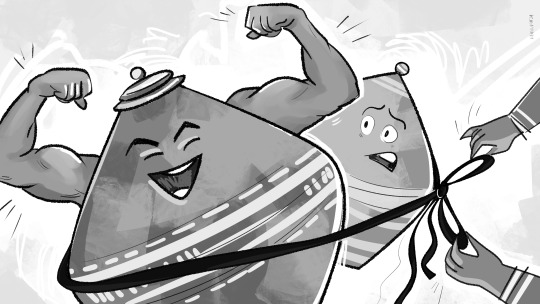#newspaper Bangladesh
Explore tagged Tumblr posts
Text



#artists on tumblr#newspaper illustration#bangladesh#thedailystar#illustration#sketch#rehnumaart#editorial illustration#design#collage
9 notes
·
View notes
Text
....
#Days go by#I'm more and more afraid they won't be getting back anytime soon no matter how much love there is#Tay wacha doing?!#Ahhhhh stop this madness#Everybody ahhhhh#I hate it here#I wish the breakup was private too cause even bangla news paper made a joke bout it yesterday#Yes my country's newspaper#Bangladesh's newspaper made a joke can ya imagine?!
2 notes
·
View notes
Video
আজকের সংবাদপত্রের শিরোনাম: ০৪ নভেম্বর, ২০২৪ | নিউজপেপার হেডলাইনস | Newsp...
আজকের সংবাদপত্রের শিরোনাম: ০৪ নভেম্বর, ২০২৪ | নিউজপেপার হেডলাইনস
স্বাগতম! আজকের ভিডিওতে আমরা তুলে ধরবো আজ, ৪ নভেম্বর ২০২৪-এর বাংলাদেশ এবং আন্তর্জাতিক সংবাদপত্রের শিরোনামগুলো। প্রতিদিন ঘটে চলা গুরুত্বপূর্ণ সংবাদগুলো একসঙ্গে তুলে ধরার জন্য আমাদের এই বিশেষ ভিডিওটি, যা আপনার দিন শুরুর সঠিক তথ্য সরবরাহ করবে।
🔹 আজকের প্রধান শিরোনাম: জাতীয় এবং আন্তর্জাতিক সংবাদে বাংলাদেশসহ বিভিন্ন দেশের সাম্প্রতিক ঘটনাগুলো বিস্তারিত বিশ্লেষণসহ উপস্থাপন করা হবে।
🔹 অর্থনীতি এবং ব্যবসা: আজকের অর্থনৈতিক পরিস্থিতি, শেয়ারবাজারের অবস্থা এবং ব্যবসায়িক অগ্রগতির খবর নিয়ে বিশদ বিশ্লেষণ। বাংলাদেশ এবং বৈশ্বিক অর্থনীতির গুরুত্বপূর্ণ দিকগুলোর ওপরে আলোচনার জন্য আমাদের সঙ্গে থাকুন।
🔹 খেলাধুলা: ফুটবল থেকে শুরু করে ক্রিকেট এবং আরও নানা খেলার দুনিয়ার আজকের সব খবর জানুন। বাংলাদেশ জাতীয় দলের আপডেট এবং সাম্প্রতিক খেলার পরিসংখ্যানসহ আর��� অনেক কিছু।
🔹 বিজ্ঞান এবং প্রযুক্তি: প্রযুক্তি এবং উদ্ভাবনের সব সাম্প্রতিক খবর, নতুন প্রযুক্তিগত উদ্ভাবন, গবেষণা এবং পৃথিবীর ভবিষ্যতের উন্নয়নের দিক নিয়ে সংক্ষিপ্ত বিশ্লেষণ।
🔹 বিনোদন: চলচিত্র, মিউজিক, এবং বিনোদনের সব খবর। আপনার প্রিয় তারকাদের নিয়ে নতুন আপডেট, আসন্ন চলচ্চিত্র এবং সিরিজ সম্পর্কে জানতে আমাদের সঙ্গে থাকুন।
এই ভিডিওর লক্ষ্য হলো একত্রে সব গুরুত্বপূর্ণ খবর পরিবেশন করা, যাতে আপনি কোনও সংবাদ মিস না করেন। প্রতিটি বিষয়ে আমাদের বিশদ উপস্থাপন আপনাকে বিষয়টি আরও ভালোভাবে বুঝতে সাহায্য করবে। তাই, ভিডিওটি সম্পূর্ণ দেখুন এবং আপনার মতামত আমাদের জানান।
ভিডিওটি যদি আপনার ভালো লাগে, তবে লাইক, শেয়ার এবং সাবস্ক্রাইব করতে ভুলবেন না। আপনার প্রতিটি মতামতই আমাদের জন্য গুরুত্বপূর্ণ।
#আজকেরসংবাদ #নিউজআপডেট #বাংলাদেশ #আজকেরশিরোনাম #BangladeshNews #আজকেরখবর #HeadlinesToday #LatestNews
আজকের সংবাদ, আজকের খবর, বাংলাদেশ সংবাদ, আজকের সংবাদপত্র, সংবাদ শিরোনাম, ০৪ নভেম্বর ২০২৪, আজকের নিউজ, বাংলাদেশের খবর, সর্বশেষ সংবাদ, বাংলাদেশ আপডেট, আন্তর্জাতিক খবর, খেলাধুলার খবর, অর্থনীতি সংবাদ, নিউজ হেডলাইনস, বিনোদনের খবর, ব্রেকিং নিউজ বাংলাদেশ, নিউজ আপডেট, আজকের টপ নিউজ
Bangladesh news, today news, headlines today, November 4 2024 news, daily news update, top headlines, Bangladesh update, international news, economy news, sports news, latest news, trending news, breaking news, news today, entertainment news, newspaper headlines, viral news
0 notes
Text

চাকরির খবর: আপনারা যারা চাকরির প্রস্তুতি নিচ্ছেন। তারা হয়তবা ভালো করে জানবেন যে প্রতি শুক্রবারে ”সাপ্তাহিক চাকরির খবর পত্রিকা” প্রকাশিত হয়। Read More…
#bd job circular#bdjobs#all bd jobs circular#government job circular#govt job circular#latest job circular#government job circular-2023#bangladesh police circular#bangladesh police job#bangladesh police job circular#saptahik job circular#weekly job newspaper#job result today
0 notes
Text

Bangladesh Computer Council Job circular Job circular
Job Circular All Job News, Job Circular Newspaper, Govt Job Circular, First View Job Circular App
বাংলাদেশ কম্পিউটার কাউন্সিল চাকরির বিজ্ঞপ্তি চাকরির বিজ্ঞপ্তি প্রকাশ করেছে বেশ কিছু পদে নিয়োগ দেবে, বাংলাদেশ কম্পিউটার কাউন্সিল ��িয়োগ দেবে। আগ্রহী প্রার্থ���দের Online-এ আবেদনপত্র, অনলাইনের মাধ্যমে আবেদন করতে হবে, সকল বিষয়ে নিচে উল্লেখ করা হয়েছে।
প্রতিষ্ঠানের নাম: : বাংলাদেশ কম্পিউটার কাউন্সিল চাকরির ধরন: : সরকারি চাকরি
#Job Circular All Job News#Job Circular Newspaper#Govt Job Circular#First View Job Circular App#Bangladesh Computer Council Job circular Job circular
0 notes
Text
রাজশাহীতে জমি নিয়ে বিরোধে সংঘর্ষ, নিহত ৩
রাজশাহীর গোদাগাড়ী উপজেলার পাকড়িতে জমি নিয়ে বিরোধে সংঘর্ষে তিনজন নিহত হয়েছেন। আজ সোমবার দুপুরে এইঘটনা ঘটে।
রাজশাহীর গোদাগাড়ী উপজেলার পাকড়িতে জমি নিয়ে বিরোধে সংঘর্ষে তিনজন নিহত হয়েছেন। আজ সোমবার দুপুরে এইঘটনা ঘটে। নিহতরা হলেন– উপজেলার বড়গাছী কানুপাড়া এলাকার নাইমুল (৮০) ও মেহের আলী (৭০)। তারা সম্পর্কে আপন ভাই। আর নিহত সোহেল রানার (৪৫) বাড়ি নগরীর রাজপাড়া থানার ভাটাপাড়া এলাকায়। অতিরিক্ত পুলিশ সুপার সনাতন চক্রবর্তী বিষয়টি নিশ্চিত করেছেন।

View On WordPress
#Ajker Rajshahi#Bangla News#Bangla Newspaper#Bangladesh Newspaper#Bd News#Breaking news#Newsrajshahi24#Rajshahir Khobor#Top news#উপজেলা#গোদাগাড়ী#জমি নিয়ে বিরোধ#তিন#নিহত#পাকড়ি#রাজশাহী#সংঘর্ষ
0 notes
Text

Winter in Bangladesh
#naturalbeauty#bangladesh#enviromental#enviroment art#nature#winter#winter in bangladesh#winter beauty#village#village witch#bangladeshi village#bangladeshi newspaper#photography
1 note
·
View note
Text

My Bangla Newspaper Banner
#all bangla newspaper#bangla newspaper#bd news#bangla news#bd newspapers#bangladesh news#bangladesh newspaper
1 note
·
View note
Text

নতুন প্রজন্মের নতুন দৈনিক: https://protidinerbangladesh.com/
1 note
·
View note
Text


#artists on tumblr#newspaper illustration#thedailystar#editorial illustration#bangladesh#sketch#illustration#rehnumaart#design
9 notes
·
View notes
Text
Press conference, July 27, 1971. Footage courtesy of AP.
“The war had been going on for a bit, and I had hardly even heard of it, so he fed me a lot of newspaper articles about it. He was saying, “I’m going to have to do something to help. Attract a bit of attention to it, raise a bit of money, much more than I could make doing my own concert, maybe like ten or twenty thousand dollars.’That for him was like doing a big one. And so I got involved. The priority was to attract world attention to what was going on. It wasn’t so much the money because you can feed somebody today and tomorrow they will still be hungry, but if they are getting massacred you’ve got to try and stop that first of all.I said, ‘Okay, I’ll go on the show and I’ll get some other people to come and help. We’ll try and make it into a big show, and maybe we can make a million dollars instead of a few thousand.’ So I got on the telephone trying to round people up. We pinpointed the days which were astrologically good, and we found Madison Square Garden was open on one of those days — 1st August.” - George Harrison, Raga Mala “George Harrison was a very powerful and influential man, and a good friend of Bangladesh. I was in the war, fighting on the front against the Pakistani Army. We had only a one-band radio and that was for getting information from the outside world. After liberation, we came to know that a concert for Bangladesh had been held in Madison Square Garden. That concert acted like a catalyst. The U.S. government did not support Bangladesh, but we got the people’s support, and that concert helped a lot.” - Mahbubul Alam, Los Angeles Post Examiner, December 5, 2013 “George Harrison brought the attention of the world to what was happening in Bangladesh during the independence war because of his concert on behalf of the country in New York in 1971. Without his effort, much of the suffering endured by the Bangladeshi people at the time would have gone unnoticed. Millions were killed, made into refugees or raped.” - Masood Sobhan, BBC, December 11, 2008 “We felt the magnitude of this act of private individuals reached so many people and moved the whole Bangladesh tragedy into the public consciousness before even the governments were willing to face up to it. The world was looking on in stunned horror, not doing anything about it, when Ravi and George drove it into their minds, particularly the young people’s. Why, they even inspired us to get… to work. You should have seen how what they did affected even the people at UNICEF." - Paul B. Edwards, New York Post, June 2, 1972, via UNICEF Archives (x)
#Ravi Shankar#George Harrison#Concert for Bangladesh#1971#1970s#George and Ravi#quote#quotes about George#quotes by George#fits queue like a glove
99 notes
·
View notes
Text
STUDENT PROTESTS IN BANGLADESH

Injuries and casualties are rising!!! Thousands injured. Children dead.
Are you aware of the ongoing student protests in Bangladesh? All schools and universities have been shut down. Even the primary schools in cities. It has led to violence. There have been casualties. All because the students (18-25/26 year olds) wanted an equal foot in the job market.
https://www.cnn.com/2024/07/16/asia/bangladesh-protests-quote-intl-latam/index.html This is a CNN article on this topic. But casualties are rising. We need international support if we are to have any chance at a better future.
https://www.thedailystar.net/opinion/views/news/lecture-halls-the-streets-universities-submerged-dual-protests-3651751 Here is a local newspaper's coverage.
https://www.amnesty.org/en/latest/news/2024/07/bangladesh-witness-testimony-video-and-photographic-analysis-confirm-police-used-unlawful-force-against-protesters/ Amnesty International's article.
https://x.com/UNHumanRights/status/1813553026357162061 UN Human Rights also commented on this subject.
The network is being impacted.
#savebangladeshistudents
#savebangladeshistudents#all eyes on bangladesh#quota movement#quota reform#bangladesh#protest#student protests#education#independence#bangla blockade#spread the word#supernatural#destiel#destiel meme#desi#desi tumblr
85 notes
·
View notes
Text
GOFUNDME FOR BANGLADESHI STUDENT PROTESTORS FACING STATE REPRESSION


"I am Sajid, a proud Bangladeshi. The state apparatus of the current government in Bangladesh has killed at least 25 people and injured thousands after students took to the streets to demand reforms to a quota system that governs the distribution of government jobs. The fundraiser is meant to (1) help the victims' families cover medical costs, and (2) supply medication/treatment to protesters who are fatally injured.
Here's the report by Amnesty International and a summary of the situation on the ground, covered by local newspapers.
I shall be solely responsible for collecting and delivering the funds to organizers and relief workers. I'll also be happy to collect receipts for the medical/supply bills for anyone who needs them."
PLEASE DONATE TO HELP PROTESTORS MANY WHO ARE TEENAGERS AND STUDENTS
22 notes
·
View notes
Text
Revolutionary Communist Party
So I recently saw a newspaper stand in a town near me, they were there on a recruitment drive too. So I figured fuck it, and joined up. Yesterday I went to their weekly meeting.
Leftist organising is rare around here and at the very least I need a foot in the door.
This Trotskyist party splintered off from the Labour party after Kier Starmer ousted Jeremy Corbyn and started cracking down on the leftist side of the party. So they've branched out on their own and are currently recruiting like crazy. I'm swept up in this now.
They have an event in November called the Revolutionary Festival that is hosting 3 days of multiple overlapping talks ranging from US imperialism, Dialectical Materialism, Fascism and how to fight it, Bangladesh revolution and the Arab spring histories, World War 1 and it's radicalising effect on soldiers, History of the Labour party, Art and revolution, Ai and Consciousness and a bunch of others.
I'm going to go to it for at least one of the days I think, mostly for networking and learning more about them.
On Reddit they seem to be very divisive among leftist circles for being empirically anti Stalin and for seeming to be well funded. I know now that they reject donors and fund themselves from members and after going to and sitting in on a local branch meeting yesterday I have a better idea of who these guys are and what they're about.
Mostly consisting of University students and student union members but not entirely; the group focuses on theory and education above most else. Importantly they seem to understand that Post Revolution and Societal Building is as important as the vague concept of Revolution itself. A breathe of fresh air from the typical leftist group. ("Uh so now what" mentality when the revolution is successful).
I'll come back to this post soon, after the November "festival" and see if there's anything to add or change.
But so far I'm not seeing many red flags and am quite glad to see a well organised Communist group.
#Communist#Communism#Revolutionary#Revolution#RCP#Revolutionary Communist Party#Communist Party#Leftism#Left Wing#Trotsky#Trotskyist#Feel free to add anything you know about this group please#Revolution Festival
10 notes
·
View notes
Text
At first glance, the photo is an innocuous one: Taken on a sunny day in 2022, a cheerful group of twelve men and women are huddled together, posing for a selfie. They’re all dressed in military fatigues — their badges identify them as Egyptian, Indonesian and Bangladeshi officers. One man is wearing the light blue beret of a UN peacekeeper: The group has just finished their induction course for their stint at MONUSCO, the UN's mission in the Democratic Republic of Congo.
Innocuous, that is, but for a bald man with glasses in the center of the photo; his arm casually draped around the shoulder of an Indonesian officer. A military source shared the picture pulled from social media with DW, Sweden-based investigative outlet Netra News, and German newspaper Süddeutsche Zeitung.
Before the officer was deployed to the UN mission, he was deputy director of the Intelligence Wing of an elite force in Bangladesh: The Rapid Action Battalion, RAB.
The force, made up of Bangladesh’s police and military, was set up in 2004 with the support of the US and others to fight terrorism and violent crime. But its brutally efficient methods meant it was soon mired in accusations of wide-spread human rights violations, leading its former backer, the US, to impose sanctions on RAB in 2021.
In an investigation published last year, DW and Netra News revealed that RAB commits torture, murder, and abductions – and goes to great lengths to cover up its crimes. Its targets: alleged criminals, opposition activists, and human rights defenders.
Its members seemingly operate with complicity from the highest political level in Bangladesh, according to two whistleblowers. A claim the government rejected as "baseless and untrue."
RAB members sent to UN missions
A year after those revelations, DW, Netra News and Süddeutsche Zeitung can reveal that members of this infamous unit are seemingly being sent on peacekeeping missions: The deputy intelligence chief turned peacekeeper was not, we found, the only man who came from the group that several of our sources referred to as "death squad."
For months, DW and its partners conducted interviews with military and UN sources in Bangladesh and beyond; trawled through classified military files, deployment lists and painstakingly identified officers through Flickr, LinkedIn and Facebook.
One man's UN deployment was corroborated with the help of his daily running routes uploaded on a jogging app: for months, the avid jogger ran around Bangui, the capital of the Central African Republic, the seat of the UN's MINUSCA mission. In another picture, he posed for a selfie outside RAB's headquarters in Dhaka.
Two deputy heads of unit that runs torture cells among the peacekeepers
We found more than 100 RAB officers who went on peacekeeping missions, 40 of them within the last five years alone.
While we don’t have evidence that every single officer was implicated in crimes, at least three of them — Nayeem A., Hasan T. and Masud R. — worked for RAB's infamous Intelligence Wing, two as deputy directors. According to several sources, it is this unit that runs a secret network of torture cells across Bangladesh, some of them located in safe houses, others hidden deep inside RAB’s compounds. Survivors and military sources told DW and Netra News of beatings, mock executions, waterboarding and electric shocks.
"We have all the available tools," one former member of RAB explained. One particularly brutal method he witnessed was to place a detainee inside a container and heat it from below. "At some point the temperature is untenable," and the detainee, he said matter-of-factly, "would speak up."
The torture cells, another source said agreed, are "where they get information from civilians."
A source in RAB told DW, Netra News and Süddeutsche Zeitung that both of the two deputy directors were implicated in crimes, such as torture and executions.
While the claim cannot be corroborated independently, several other sources confirmed that it was likely that deputy directors with command responsibility would have signed off on what was happening in the torture cells, or at the very least known what was happening.
And yet, they were later tasked, as peacekeepers, to protect vulnerable civilian communities. The idea of peacekeeping was born after the Second World War: a force at the behest of the international community made up of soldiers and police officers drawn from the UN's member states, sent by the Security Council when governments fail and countries descend into turmoil.
Currently, tens of thousands of peacekeepers are deployed globally, in conflicts and crises ranging from the Democratic Republic of Congo, South Sudan and the Central African Republic to Kosovo and Kashmir.
Despite these lofty ideals, peacekeeping operations, individual soldiers and entire contingents have over the years been embroiled in scandals, which the UN has always been swift to condemn. Critics say peacekeeping missions have been ineffective, while those defending peacekeeping say they have saved countless lives.
In 2012, after several sexual abuse scandals by peacekeepers made headlines, most notably of children in Haiti, the UN implemented a new human rights policy for its personnel.
Up to 'abusive government' to vet peacekeepers
While troop contributing countries generally continue to select and vet the military personnel they send to missions with the exception of Force Commanders and their deputies, they now have to attest for each soldier that they have not committed or are alleged to have committed any human rights violations.
In the case of Bangladesh, that means that "they are asking an abusive government to then decide which officers are abusive or not," Meenakshi Ganguly, deputy director for South Asia at Human Rights Watch said in a phone call.
Bangladesh's government, Ganguly explained, "does not seem to believe that people that commit human rights violations need to be prosecuted and held to account.” Indeed, few members of RAB have ever been prosecuted.
And that is why she, together with several other human rights organizations, both Bangladeshi and international, has long called for RAB to be banned entirely from peacekeeping operations.
They are not the only ones to sound a warning: In August 2019, the Committee against Torture, a UN body made up of independent experts that monitor human rights in UN member states, published its report on Bangladesh.
Its authors voiced concern at "numerous reports" of cases in which members of RAB "have been credibly alleged to have committed torture, arbitrary arrests, unacknowledged detention, disappearances and extrajudicial killings of persons in their custody.
'Grave concern'
One of the report's authors is Jens Modvig, a medical doctor who runs Dignity, the Danish Institute Against Torture, an NGO housed in an unassuming office block in Copenhagen.
While making coffee in the organization's small kitchen, he recalled the experts’ "grave concern" at the reports of human rights abuses by Bangladesh's security forces. It was a term, he said, they had "not used lightly."
The Committee's recommendations, Modvig said, "was that former and current members of RAB should not be allowed to do service in peacekeeping operations."
And yet, our investigation shows nothing happened.
DW, Netra News and Süddeutsche Zeitung sent several requests for an on-camera interview to the UN Department of Peacekeeping Operations. They were declined.
Instead, the UN agreed to respond in writing to the findings: "We do not have", a spokesperson wrote, "the resources to screen each and every person and have a long-standing policy that places specific responsibility on troop and police contributing countries."
In the case of Bangladesh, the spokesman went on, UN Peacekeeping "has continuously engaged bilaterally with national authorities to convey concerns about serious allegations of human rights violations by defense and security forces, in particular by members of RAB".
UN susceptible to blackmail?
We did eventually find one man willing to go on-the-record: Andrew Gilmour, a former UN Assistant Secretary-General for Human Rights. Today, he heads the Berghof Foundation in Berlin that advocates for global peace: a-long-time UN diplomat, who, he said, picks his jackets according to an interview’s topic and mood.
For a story about peacekeeping and human rights abuses, he donned a somber blue.
If he was still in the UN, he said, "I probably wouldn't be able to be this frank and to say we get some really pretty useless troops and some pretty brutal ones as well."
Bangladesh, he concluded, was far from a unique case: "It is not the first time that member states have put forward people with bad human rights records to serve in their battalions that they assign to the UN." At times, he said, "it can be entire contingents that were implicated in some action, repressing people in their own country, for example, and other times it is individuals."
He stressed repeatedly that the UN was doing its best to prevent that from happening.
But he conceded, if the UN pushed countries too hard, there was a risk they might threaten to pull out their troops entirely. It was "pretty hard to do something about if the government of that member state is insisting on putting forward a contingent or an individual."
In one case, he recalled, "one country that was really important in contributing troops to a number of peacekeeping operations literally said, OK, we're going to pull out all together." And so, he explained, the UN's Secretary General at the time "had to basically go to that country and essentially apologize to the head of state."
Otherwise, four UN peacekeeping operations would have collapsed, Gilmour said.
His testimony seemed to point to one thing: that when it comes to peacekeepers, the UN is seemingly susceptible to blackmail.
A UN source agreed: at even the slightest hint of criticism, officials in Bangladesh — one the UN’s major troop contributors — threatened to withdraw their troops. As of March of this year, about 6,000 Bangladeshi peacekeepers were actively deployed worldwide.
It's unclear, however, whether Bangladesh would actually go through with this threat and thus lose access to UN missions, which are lucrative both for individual soldiers and the countries deploying them.
According to government officials, Bangladesh has received more than 2.5 billion USD over the past 23 years. Individual peacekeepers receive a higher salary than they would back home.
The spokesperson for UN Peacekeeping rejected the claim that the UN is seemingly powerless when faced with threats: "The largest troop contributor at the moment contributes less than 10% of the 65,000 personnel deployed. Therefore, no single troop contributor can credibly threaten to undermine the viability of a peacekeeping operation by withdrawing all of their forces".
UN's hands seemingly tied
There is a reason why, according to Gilmour, the UN's hands are seemingly tied. When he was "very, very young," the majority of UN peacekeepers came from places like Sweden and Ireland, he explained.
But over the years, as the Cold War drew to a close in the early 1990s, faced with deadlier missions, Western governments increasingly started to pull their troops out of peacekeeping operations, preferring to pay for them instead.
Democratic governments had to weigh whether they could pay a certain blood toll, according to a political source from a western European country with inside knowledge of the workings of the UN. If soldiers deployed to UN missions returned in body bags, he explained, their governments could soon have a parliamentary inquiry on their hands.
That, he added, was not a problem countries like Bangladesh had to deal with. At the same time, he conceded that UN peacekeeping missions were lucrative for both individual soldiers and governments to fill their coffers.
12 notes
·
View notes